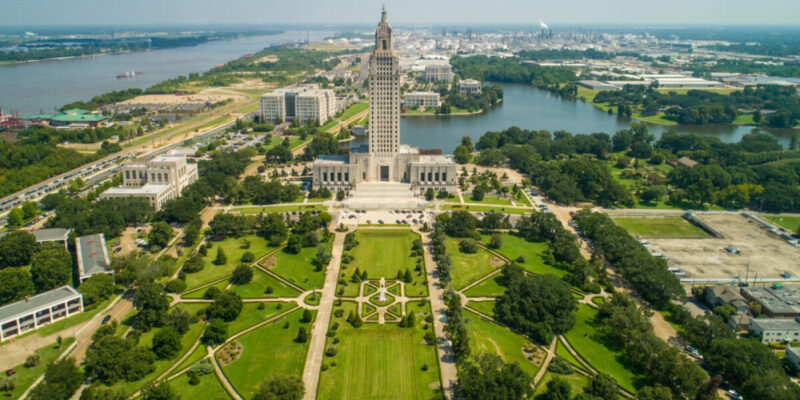(Legislation to craft new congressional districts approved by lawmakers during an extraordinary session is not expected to face further legal challenges, with plaintiffs in an ongoing case praising the bill.
“Black Louisianans have faced generations of discrimination in political representation, and this map can finally chart a more hopeful direction for communities across the state,” Jared Evans, senior policy counsel for the NAACP Legal Defense Fund, said in a statement.
“This map would not have been possible without years of organizing, lobbying, and litigation to ensure that the rights of Black voters are enforced,” Evans said. “While we know the Legislature could have passed this map years ago or adopted the map offered by Plaintiffs, we also know that this map will finally provide Black voters with a true opportunity to elect their candidates of choice in two congressional districts.
Evans represents plaintiffs in Robinson v. Landry, filed in 2022 to challenge congressional districts plaintiffs claimed did not sufficiently represent Black voters with one Black majority district out of six. U.S. District Judge Shelly Dick, an appointee of former President Barack Obama, sided with plaintiffs and ordered lawmakers to redraw the districts by Jan. 31. An appeals court denied a request for review, as did the U.S. Supreme Court.
The situation prompted Gov. Jeff Landry, who defended the districts in court, to call an extraordinary session for last week that concluded Friday with lawmakers approving Senate Bill 8, sponsored by Sen. Glen Womack, R-Harrisonburg.
The legislation shifts the 6th Congressional District currently held by Republican Rep. Garret Graves to a Black majority district that extends across the state, from Caddo Parish to East Baton Rouge. Womack said his focus for the map was to protect Republican House Speaker Mike Johnson, House Majority Leader Steve Scalise, and Rep. Julia Letlow, the state’s only congresswoman who represents Womack’s district. SB 8 maintains the current Black majority district centered on New Orleans that’s represented by Rep. Troy Carter.
“Approximately one-third of Louisiana’s population is black. Yet, only one-sixth of our State’s congressional districts were majority-minority, which denied African-American voters the chance to select the candidate of their choice,” House Democratic Caucus Chairman Rep. Matthew Willard, D-Baton Rouge, said in a statement. “The prevailing map creates a second Congressional district with a majority Black voting age population, which enables Black voters to send a representative to Congress that will fight for their interests.”
Advertisement
Lawmakers also approved House Bill 16, by Rep. Jack McFarland, R-Jonesboro, to appropriate $1.4 million for the Secretary of State to implement the new map, as well as House Bill 17, by Rep. Julie Emerson, R-Carencro, to move from a jungle primary to a closed party primary for some races.
The latter was amended to restrict the change to closed primaries to elections for Congress, the state’s Supreme Court, Board of Elementary and Secondary Education, and the Louisiana Public Service Commission that oversees utilities. Another change from the original bill allows unaffiliated voters to participate in party primaries.
HB 17 is slated to take effect in 2026. Landry is expected to sign all bills approved by lawmakers last week.
Lawmakers also considered legislation to craft new districts for the state’s seven Supreme Court justices, but it ultimately died in the Senate without a final vote. Senate President Cameron Henry, R-Metairie, has said the upper chamber may revisit the bill in an extraordinary session slated to address crime on Feb. 19 or during the regular session that begins March 11.
Advertisement
Advertisement

